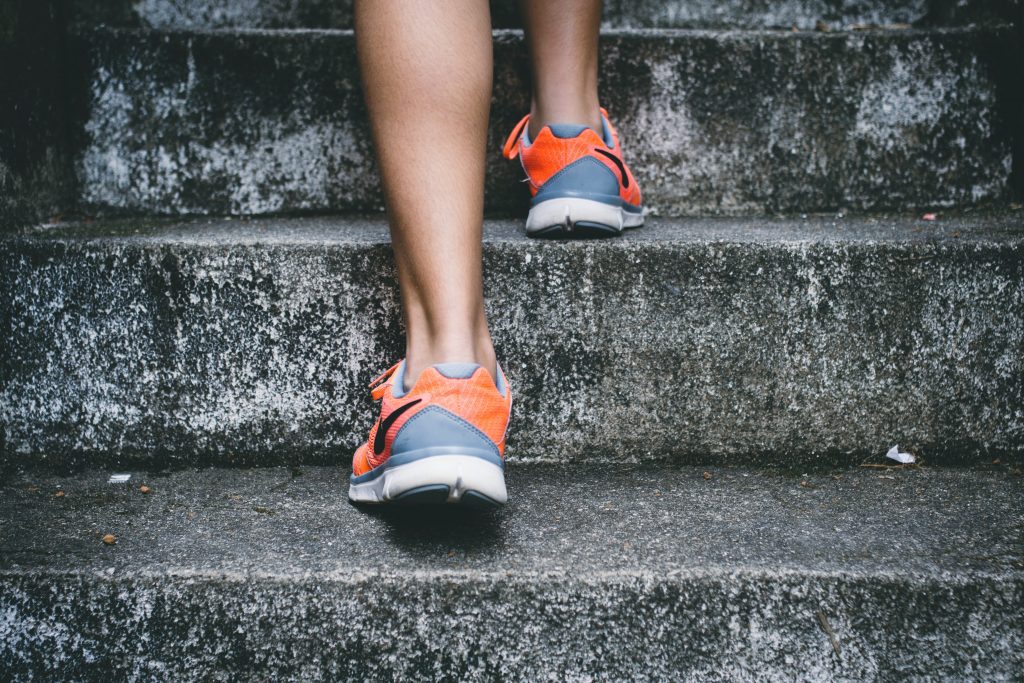
5 strategies to maintain a healthy weight
Running and exercise in general is key to maintaining a healthy weight, but sometimes we accumulate stubborn pounds that are hard to shift, especially as we enter our late 40’s and 50’s. By adopting the 5 strategies below, you’ll be able to reduce excess weight or prevent putting it on in the first place without the need for restrictive diets.
Balance your blood sugar
Keeping your blood sugar in a healthy range is important to ensure that you have adequate energy throughout the day and don’t have food cravings, especially for those tasty high calorie treats. When planning your meals, choose low glycaemic foods – these are foods that don’t spike your blood sugar and that give you sustained energy over a longer period. A blood sugar spikes is inevitably followed by a crash, leaving you feeling shaky, tired and hungry. A low glycaemic meal has little to no refined or processed carbohydrates and always includes some protein such as lean meats, dairy and legumes, healthy fats such as avocados, nuts and seeds, and lots of fibre rich foods such as whole grains and vegetables.
Eat mindfully
With our busy modern lives, we’re often grabbing our meals and snacks on the run. But this can contribute to digestive problems and unwanted weight gain. As digestion begins in the mouth, it’s important to chew every mouthful until it is the consistency of baby food. Chewing also stimulates the release of digestive enzymes which allow your body to absorb all the essential nutrients. Eating slowly and mindfully gives your body time to register when you’ve reached satiety so you don’t eat more than you need. I always recommend that you try to eat all your meals and snacks sitting down, preferably not multitasking and without screen distractions. This may feel too time consuming at first, but your body will thank you for it!
It isn’t what you eat, but when
Many of us graze throughout the day, never giving our digestive systems an opportunity to rest and repair. Considerable research has revealed that limiting the time window in which you eat all your meals to around 10 hours and then fasting for the rest of the day can improve your digestive health and help you to lose weight. You’ll need to experiment to see what times suit you and your circumstances best. As I always recommend having a nourishing breakfast, an eating window from 8.30am till 6.30pm is ideal. If you’re having an early morning run, ensure you allow around an hour to digest your breakfast, and adjust your window accordingly. During the fasting period, you can enjoy tea, coffee and water flavoured with fruit or herbs. By restricting your eating window and sticking to three balanced meals you’re more likely to cut out those high calorie snacks and start shedding the excess pounds.
Catch enough zzzz!
Besides affecting how effectively you train, sleep deprivation can sabotage your waistline. This is due to its effect on your nightly hormones, namely ghrelin, the hormone that tells us when were hungry and leptin, the hormone that signals satiety and tells you to stop eating. When you’re sleep deprived, you have increased ghrelin and less leptin, making it more likely that you’ll snack more throughout the day. And to make matters worse, this imbalance can also make you reach for the more sugary snacks to increase your energy levels. The hours before midnight have been shown to be the most beneficial for your overall sleep quality so I now set an alarm in the evening to remind me to promptly draw an end to my day and head up to bed!
Hydrate!
Besides being essential in maintaining your energy levels throughout the day, water is needed by your body to process calories and maintain a healthy metabolism. If you are even mildly dehydrated, your metabolism may slow down. In one study, adults who drank eight or more glasses of water a day burned more calories than those who drank four. To stay hydrated, I drink a glass of water before every meal, and keep a bottle with me to sip all day. We can often mistake thirst for hunger so reach for your water bottle first. If you do snack, opt for fresh fruits and vegetables, which naturally contain water, rather than biscuits or crisps.
By staying mindful of these 5 strategies and making them daily habits, you will be optimising how your body uses the food you eat. You’ll maintain a healthy weight without restrictive diets and you’ll feel energised for your daily run!
